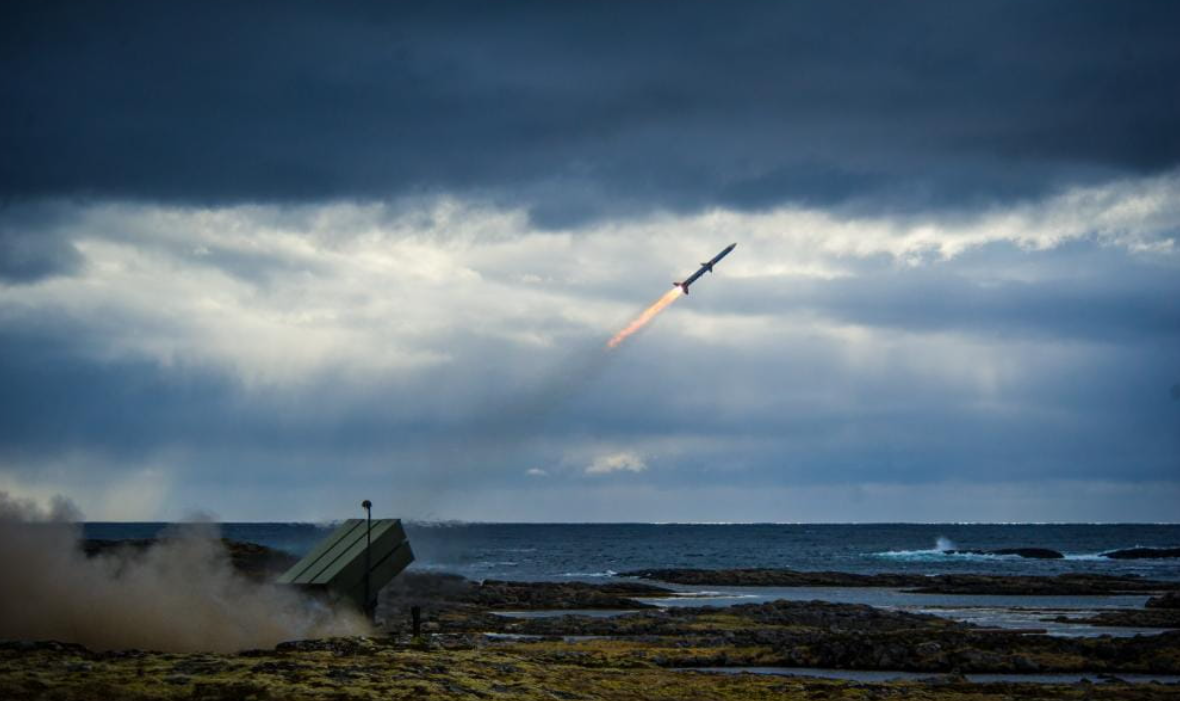
An Amraam is fired from a Raytheon-Kongsberg National Advanced Surface-to-Air Missile System.
Ukraine is not likely to see many of the high-end air defense systems the West has pledged for several months to years because much of the announced funding has not been allocated, Raytheon’s chief executive says.
Greg Hayes, speaking Feb. 22 during a Barclays Industrial Select Conference, says of the $45 billion that has been allocated for new contracts for Ukraine, his company has only seen less than $2 billion contracted. Across the broader U.S. defense industrial base, that number is about $7.5 billion.
Two of the highest-profile air defenses announced for Ukraine for its war with Russia are Raytheon’s Patriot and the National Advanced Surface-to-Air Missile System (NASAMS) that it produces with Norway’s Kongsberg. A new order for a Patriot takes more than two years to be delivered, Hayes says.
For NASAMS, six are on order for Ukraine, but “they won’t see those until starting this summer, probably through next year,” he says. Ukraine has received existing donated NASAMS, and officials have said they are highly effective at targeting Russian cruise missiles and UAVs.
There is an ongoing backlog for other key systems such as Javelins anti-armor missiles and Stinger man-portable air defenses, with the orders expected to play out over the next two to three years.
This demand signal does not take into account priorities that will be key for the U.S. in the Indo-Pacific region. For example, Hayes says the company’s Standard Missile-6 is in “huge demand.” The U.S. Navy’s stocks would currently last about seven days in a conflict and “that doesn’t bode well for a long war,” he says.
While global supply chain issues have been well documented, Hayes says Raytheon also had issues and missed changing trends for long lead times for key parts and limited availability of raw materials.
Pentagon officials have announced efforts to help companies try to identify critical parts in their supply chain. For example, Bill LaPlante, the Pentagon’s assistant secretary of defense for acquisition and sustainment, has said Pentagon officials are conducting research into key choke points for critical munitions, such as microelectronics and components such as ball bearings. The goal could be to use Pentagon funding and other steps such as the Defense Production Act to smooth out the issues.
